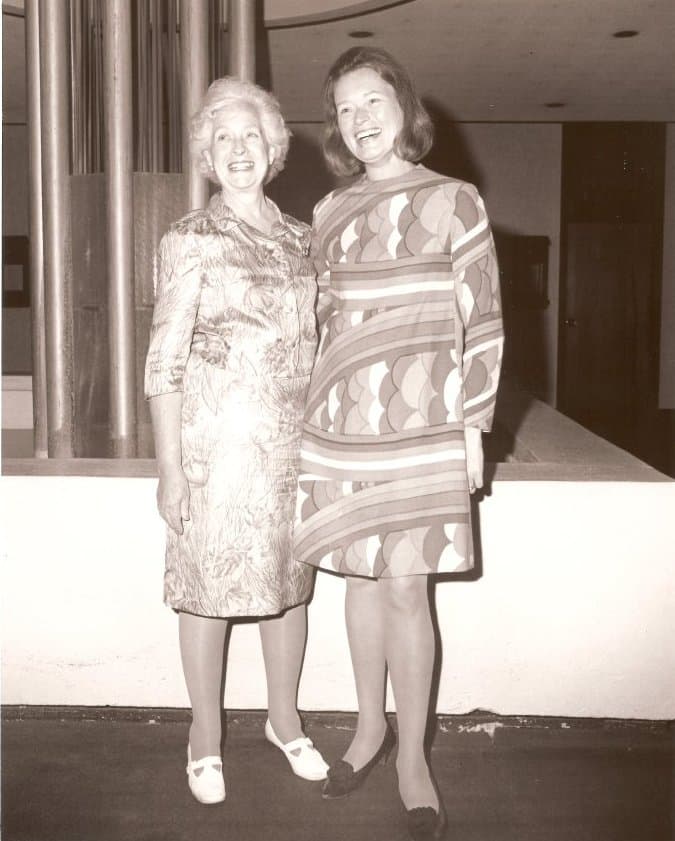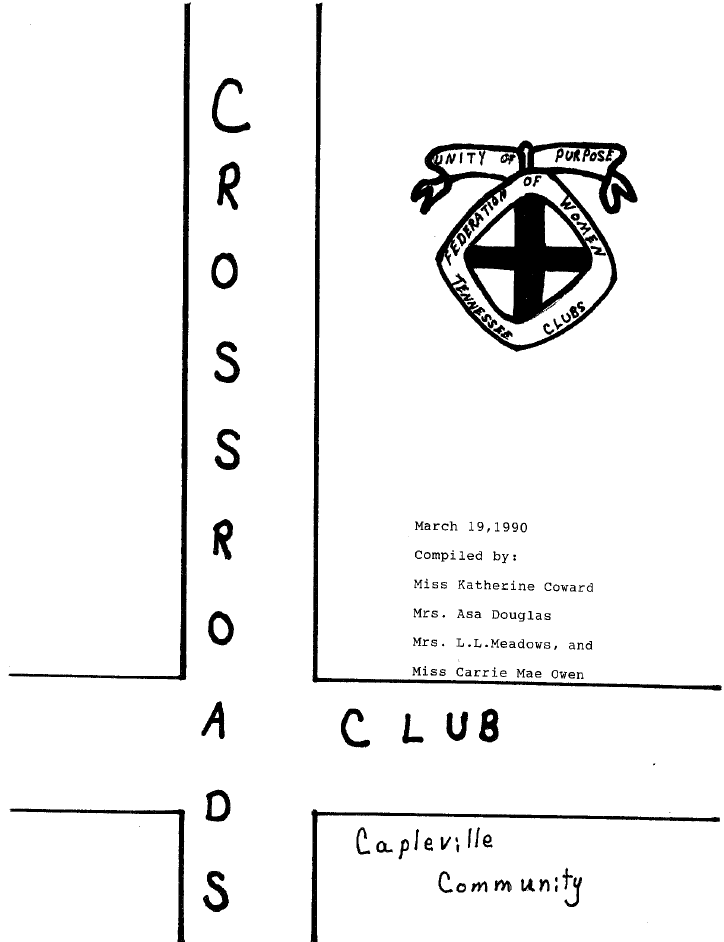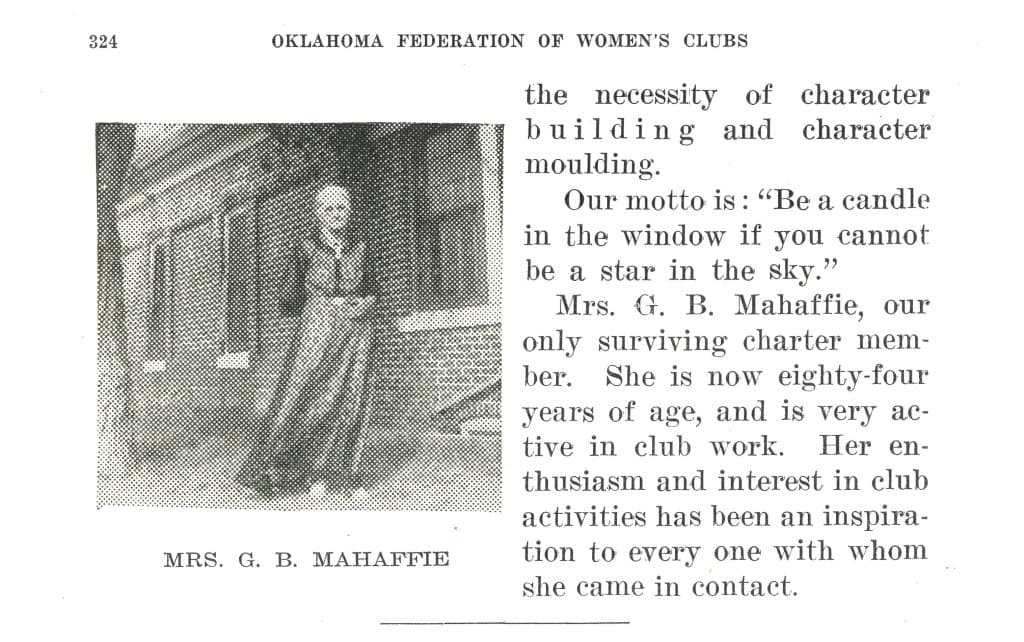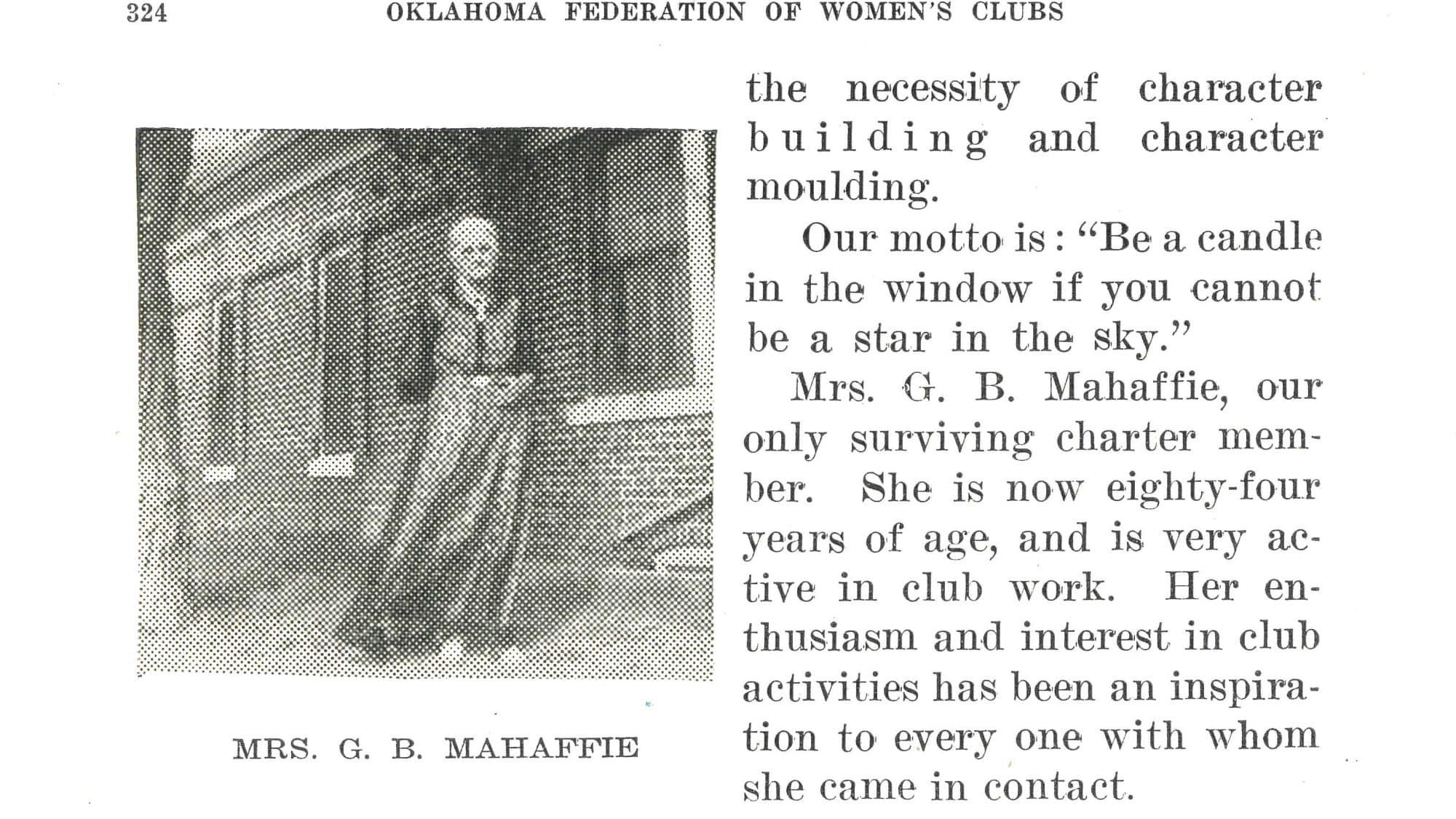Family Connections (Part 2)
By: Joanna Church, Women’s History and Resource Center Librarian
As we saw in last month’s post, the theme of FAMILY runs through the materials held in the WHRC collections. Family also features strongly in the ways our collections are accessed. Some researchers seek us out because they have discovered evidence of club membership amongst a relative’s belongings, and they want to learn more about that woman’s life. For others, the memory of “Great-Aunt Somebody who I think maybe belonged to a woman’s club…?” serves as a point of connection to those who might otherwise be unfamiliar with the work of GFWC. No matter the context, we’re happy to do our best to help find those relatives and their stories—though I always caution researchers that we can’t guarantee that we’ll find who they’re looking for. For almost the entirety of our history, GFWC has left the tracking of individual membership rosters up to the clubs themselves; most Federated club members’ names and stories have not been recorded in our files.
That being said, the fact that even a small percentage of members are recorded in our archives is a large part of what makes the WHRC collections unique. The accomplishments of countless women throughout history have been lost, erased, discounted, or forgotten – which is why the practice of women’s history is so restorative! – and those who have been remembered tend to be big names. But the stories of “ordinary” women are no less important, especially on a local scale. That’s where our collections shine. The on-the-ground, everyday community work of GFWC clubwomen is remembered here at the Women’s History and Resource Center.

A research request from a relative of GFWC International Past President Louise Graham Brown (1970-1972) helped us confirm the identity of the woman with her in this photograph: Ann Blodgett Brown, Louise’s daughter-in-law, who also served as her aide during her term. Louise is shown at left, with Ann at right; taken at the 1971 GFWC Convention.
Image: from WHRC collection, PRES 1970-72.19
The Crossroads Club of Capleville, Tennessee submitted this document – written for the GFWC Centennial celebration in 1990 – to the WHRC Club History collection. It came in handy recently, when a woman who grew up in Capleville asked us to look for whatever we might have on her family. We discovered that at least two of her relatives belonged to this club, and were named in the history. The stories told here, about the club’s members and the town they worked to improve, helped our researcher connect a little more fully to her family’s life in Tennessee.
Image: WHRC Club History collection, CH TN 012


I can’t resist ending this month’s post on a personal note, even though this accidental-success story might inspire some false hope. One of the first research requests I received, after starting my job here at the WHRC, was about early clubs in the Oklahoma Federation. The best source for that info is the History of Oklahoma State Federation of Women’s Clubs (Luretta Rainey, 1939), a published volume in which the author, somewhat unusually, provided brief histories of individual clubs. While I was reading through the book, my eye was caught by a familiar name: that of my great-great-grandmother Mollie Williams (Mrs. George B.) Mahaffie, the “only surviving charter member” of the Yamprika Club, founded in 1901. Mollie rated not only a personal description, but also a photograph. This was indeed a rare find, but one that made my extended family very happy.
Image: WHRC State History collection.
I really can’t promise you that your own family search will be as successful as any of the ones described here, but we are willing to give it a try! If you have questions about former club members in your family, please reach out and we’ll see what we can come up with for you.
Remember to check back next month for more stories from GFWC history (and present)! To learn more about the WHRC collections, visit the WHRC page or contact us at whrc@gfwc.org.
Joanna Church is the Women’s History and Resource Center Librarian at GFWC Headquarters in Washington, DC. She oversees the WHRC collection, handles research requests, and loves sharing our unique resources with fellow fans of women’s history.
Learn More about the WHRC
The Women’s History and Resource Center

One reply on “WHRC: From the Archives”
Another fab story ,J. Great that you found a relative!! Laurie SRWC Colo.